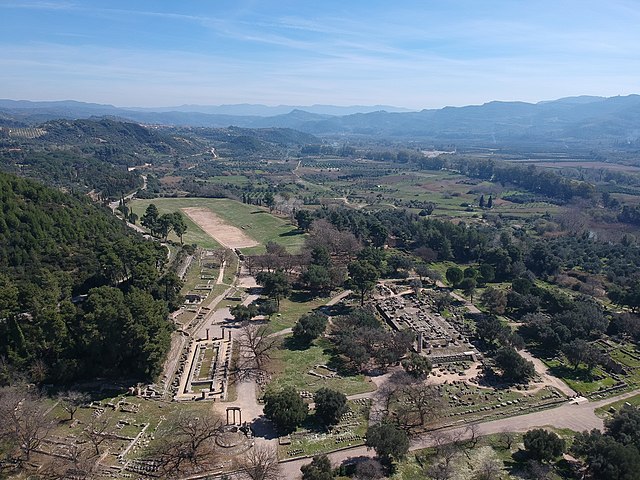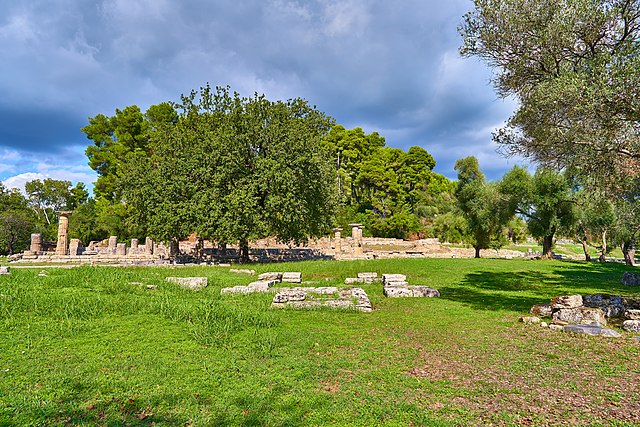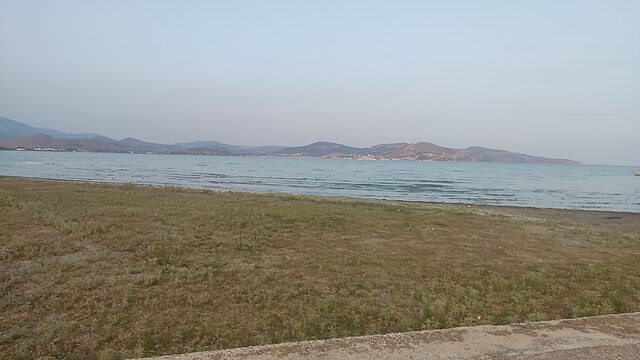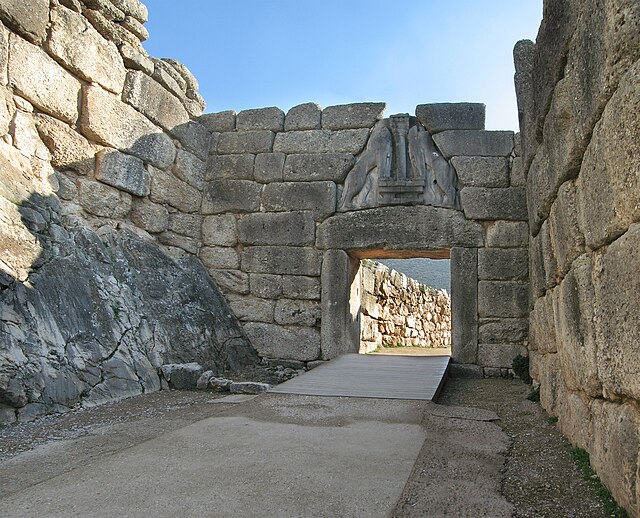Olympia, officially Archaia Olympia, is a small town in Elis on the Peloponnese peninsula in Greece, famous for the nearby archaeological site of the same name. This site was a major Panhellenic religious sanctuary of ancient Greece, where the ancient Olympic Games were held every four years throughout Classical antiquity, from the 8th century BC to the 4th century AD. They were restored on a global basis in 1894 in honor of the ideal of peaceful international contention for excellence.
View of the Palestra, a center for wrestling
The archaeological site showing the stadium, the temple of Hera, the temple of Zeus. The line of trees, upper right, border a road to the north of the Alfeios. Geologically the site is terraced into the gentle north slope of the Alfeios valley visible in the background.
Peribolos wall remains seen in the foreground from the south against the backdrop of the Temple of Hera
Crypt (arched way to the stadium)
The Peloponnese, Peloponnesus or Morea is a peninsula and geographic region in Southern Greece, and the southernmost region of the Balkans. It is connected to the central part of the country by the Isthmus of Corinth land bridge which separates the Gulf of Corinth from the Saronic Gulf. From the late Middle Ages until the 19th century, the peninsula was known as the Morea, a name still in colloquial use in its demotic form.
The Corinth Canal
Landscape in Arcadia
View of the Argolic gulf, with Nafplio visible
The Lion Gate in Mycenae








